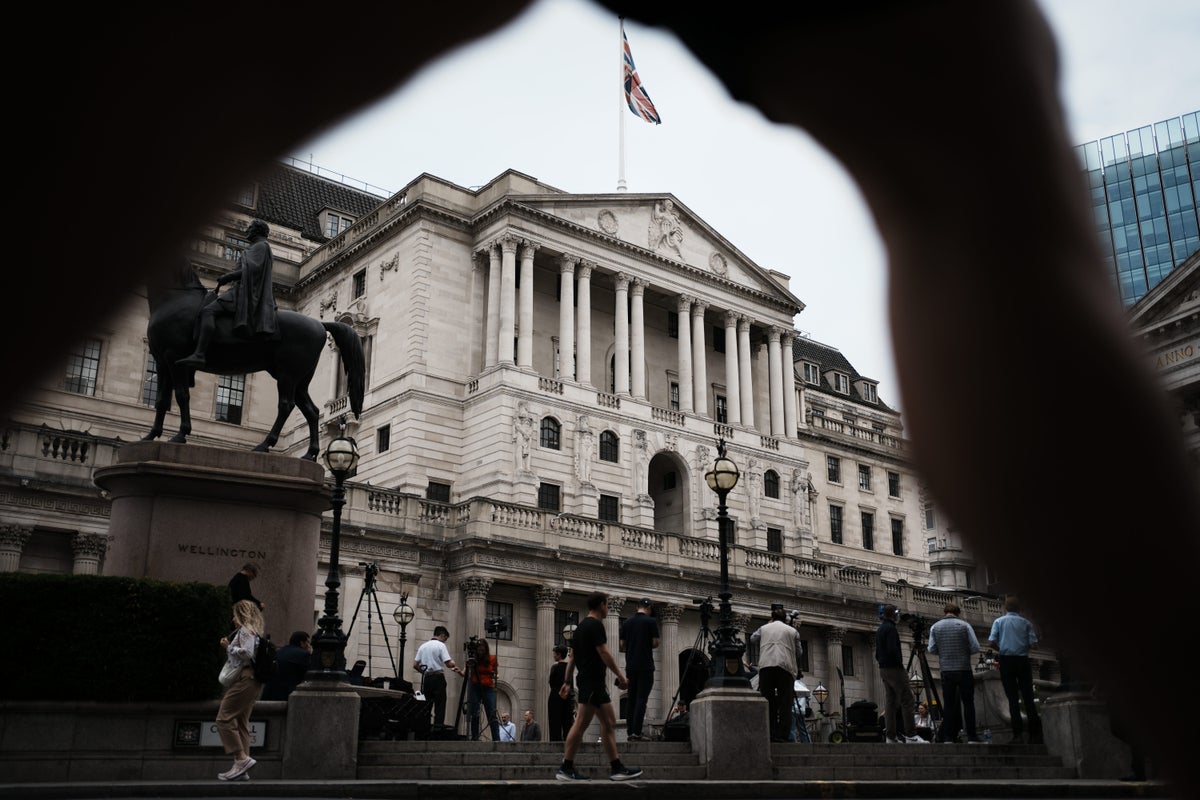
Tech firms are vulnerable to the risk that soaring valuations will drop sharply amid potentially “disappointing” progress around artificial intelligence (AI), the Bank of England has warned.
The risk of a “sharp correction” in the financial markets has increased, the Bank’s Financial Policy Committee (FPC) said.
The minutes of the FPC’s latest meeting read: “On a number of measures, equity market valuations appear stretched, particularly for technology companies focused on artificial intelligence.
“This, when combined with increasing concentration within market indices, leaves equity markets particularly exposed should expectations around the impact of AI become less optimistic.”
It said there was a risk that “disappointing” progress on AI capability or adoption, or increased competition could drive valuations lower across the sector.
“Material bottlenecks to AI progress” including across power, data, or commodity supply chains could also harm valuations, particularly for firms who are expected to benefit from greater AI investment, the FPC said.
It comes at a time that valuations for tech firms have boomed amid expectations that the adoption of AI technology will ramp up around the world.
Huge technology companies like Nvidia, Google and Microsoft have all seen their share prices soar over the past year.
Meanwhile, the Bank’s FPC flagged concerns about the independence of the US’s Federal Reserve coming under pressure from US President Donald Trump.
It said central bank independence “underpins monetary and financial stability”.
“A sudden or significant change in perceptions of Federal Reserve credibility could result in a sharp repricing of US dollar assets, including in US sovereign debt markets, with the potential for increased volatility … and global spillovers,” the Bank added.
Mr Trump has sought to oust the Federal Reserve’s governor Lisa Cook over allegations she committed mortgage fraud when purchasing a home in 2021, but a judge ruled that the firing was illegal.
He has also repeatedly demanded that the Fed, led by chairman Jerome Powell, reduce its key interest rate.
The Fed, like the Bank of England, operates independently of government – meaning it sets interest rate policy without political interference.
In the meeting, the FPC also cautioned the impact of Mr Trump’s trade war had “not yet been fully realised”.
Uncertainty over tariffs pose a risk to the global economic outlook, it said.
It said geopolitical risks remained “elevated” while global conflicts had raised energy supply fears, but added that oil and shipping prices had eased back since its last meeting earlier this year.
Despite the increased risks, the experts assured the UK banking system was equipped to support households and businesses even if economic conditions were to get much worse than expected.
Households face continued pressure from higher borrowing costs and the cost of living, but the outlook was generally improving, it said.
